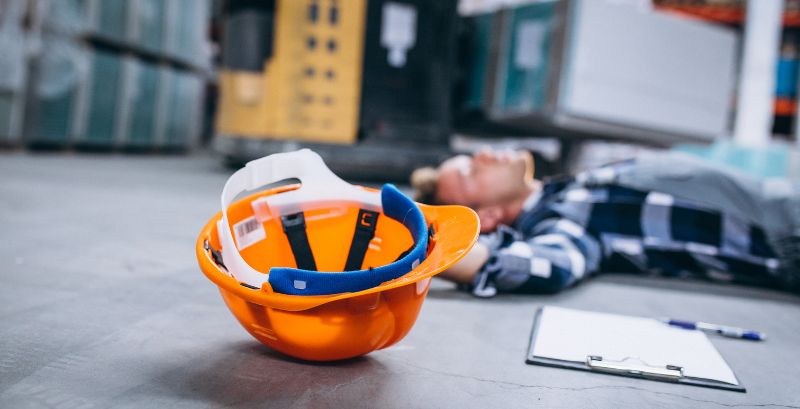Construction sites are known for their dynamic and hazardous environments, where the potential for accidents and injuries looms large. In the wake of such accidents, victims not only suffer physically but also bear the weight of financial and emotional burdens. To navigate these challenging situations, it’s crucial to comprehend the intricacies of construction accident compensation and the diverse range of damages one can recover.
This article delves into the various types of damages that may be available to individuals who have suffered construction-related accidents.
A Brief Introduction to Construction Accidents
Before delving into the details of compensation, it’s crucial to understand the nature of construction accidents. These accidents can involve a wide range of scenarios, including but not limited to:
- Falls: Falls from scaffolds, ladders, roofs, or other elevated areas are common in construction accidents.
- Falling Objects: Construction sites often involve materials and equipment being moved at heights, which can result in objects falling and causing injury.
- Equipment Accidents: Construction sites are filled with heavy machinery and equipment, which can lead to accidents if not operated or maintained properly.
- Electrical Accidents: Wiring and electrical components are prevalent on construction sites, making electrical shocks and fires potential hazards.
- Structural Failures: Collapses or structural failures of buildings or scaffolding can lead to severe injuries.
- Chemical Exposure: Construction often involves the use of hazardous chemicals and materials, which can lead to chemical burns or respiratory issues.
- Repetitive Stress Injuries: Construction workers may suffer from long-term injuries due to repetitive tasks or improper ergonomics.
Types of Compensation Available
When someone is injured in a construction accident, they may be entitled to various types of compensation, depending on the circumstances of the accident and the applicable laws. Here are the primary categories of damages that can be recovered:
Medical Expenses
One of the most fundamental forms of compensation is reimbursement for medical expenses. This includes the costs of emergency room visits, hospital stays, surgeries, doctor’s appointments, prescription medications, physical therapy, and any other necessary medical treatments related to the construction accident.
Lost Wages and Earning Capacity
If the injury results in missed work or a diminished ability to work in the future, the injured party may be entitled to compensation for lost wages. This includes not only the income they have already lost but also any future earnings they would reasonably have expected to earn if not for the accident.
Pain and Suffering
Pain and suffering damages are non-economic damages that encompass the physical and emotional pain endured due to the construction accident. These damages are challenging to quantify but are often awarded based on the severity of the injury, the duration of recovery, and the impact on the individual’s life.
Emotional Distress
Construction accidents can lead to significant emotional distress, including anxiety, depression, and post-traumatic stress disorder (PTSD). Compensation for emotional distress can help individuals receive therapy and counseling to address these issues.
Loss of Consortium
In cases where the injured party’s injuries have negatively impacted their relationship with a spouse or partner, the spouse/partner may be entitled to compensation for the loss of consortium, which refers to the loss of companionship, intimacy, and support.
Property Damage
If personal property was damaged or destroyed in the construction accident (e.g., a vehicle parked near the site), the cost of repairing or replacing these items may be recoverable as part of the compensation.
Punitive Damages
In cases of extreme negligence or intentional misconduct on the part of the responsible party, punitive damages may be awarded. Punitive damages are meant to punish the wrongdoer and deter similar conduct in the future.
Wrongful Death Damages
Tragically, some construction accidents result in fatalities. In such cases, the surviving family members may be entitled to wrongful death damages, which can include funeral expenses, loss of financial support, and compensation for the emotional toll of losing a loved one.
Determining Liability
To recover compensation in a construction accident case, it’s essential to establish liability, which means proving that someone else’s negligence or wrongful actions were responsible for the accident and resulting injuries. Liability in construction accidents can be attributed to various parties, including:
- Contractors and Subcontractors: Those responsible for managing the construction site may be liable for accidents if they failed to implement proper safety measures or adequately train workers.
- Property Owners: Property owners may be held liable if they knew or should have known about unsafe conditions on their property and failed to address them.
- Manufacturers: Manufacturers of defective construction equipment or materials may be liable if their products caused or contributed to the accident.
- Architects and Engineers: Design professionals can be held responsible if their plans or specifications lead to unsafe conditions.
- Other Workers: In some cases, other workers on the site may be responsible for accidents due to their actions or negligence.
The Role of Workers’ Compensation
In many construction accident cases, injured workers may be eligible for workers’ compensation benefits, which are provided by their employers’ insurance. Workers’ compensation typically covers medical expenses and a portion of lost wages, regardless of who was at fault for the accident. However, it often limits an injured worker’s ability to sue their employer for additional damages.
Pursuing a Construction Accident Claim
If you’ve been injured in a construction accident, it’s essential to take specific steps to protect your rights and pursue compensation:
- Seek Medical Attention: Your health should be your top priority. Seek immediate medical attention, and keep records of all medical treatments and expenses.
- Report the Accident: Report the accident to your employer and document it properly. Failure to do so may affect your ability to claim workers’ compensation benefits.
- Gather Evidence: Collect as much evidence as possible, including photographs of the accident scene, witness statements, and any relevant documentation.
- Consult an Attorney: Consider hiring an experienced construction accident lawyer with expertise in construction accidents. They can help you navigate the legal process, negotiate with insurance companies, and file a lawsuit if necessary.
- Statute of Limitations: Be aware of the statute of limitations, which is the time limit within which a lawsuit can be filed. This deadline varies by state and can be as short as one year in some cases.
- Settlement Negotiations: Your attorney will likely engage in settlement negotiations with the responsible parties or their insurance providers. Be prepared to discuss the compensation you believe you are entitled to.
- Litigation: If a fair settlement cannot be reached, your lawyer may file a lawsuit on your behalf. The case may go to trial, where a judge or jury will determine the outcome.
Conclusion
Construction accidents can result in severe injuries and substantial economic and non-economic losses. Understanding the types of compensation available and the process of pursuing a construction accident claim is crucial for injured parties and their families.
If you find yourself in such a situation, consult with a qualified attorney, like the attorneys at Swartz & Swartz, who can guide you through the legal process and help you recover the compensation you deserve. Remember, while compensation cannot erase the physical and emotional pain caused by a construction accident, it can provide the financial support needed for recovery and a better future. For more information, explore our website.
Keep Reading
Want more? Here are some other blog posts you might be interested in.




